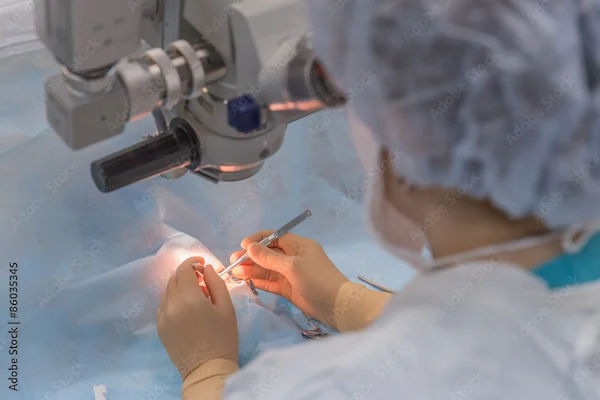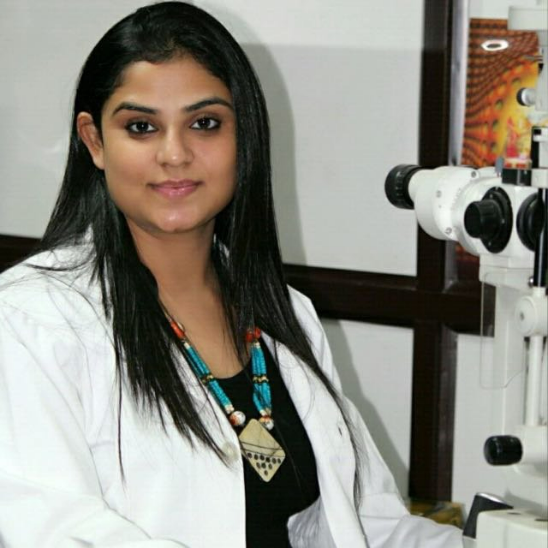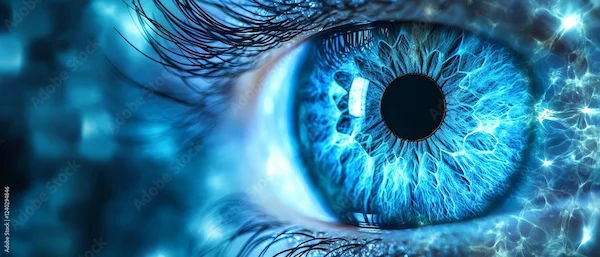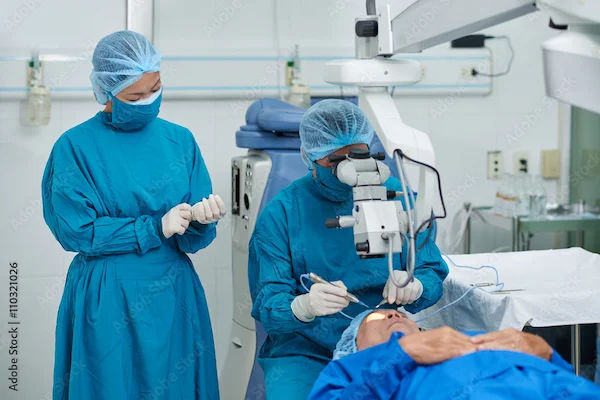How Long Does It Take For Your Vision To Stabilise After Cataract Surgery With Lens Implant?
Find out how long it takes for your vision to stabilise after cataract surgery with lens implant. Learn about the recovery timeline, what to expect, and tips for optimal healing.

Written by
Last updated on 3rd Jul, 2025

Introduction
Cataract surgery is a common and highly successful procedure that helps restore clear vision by replacing the cloudy natural lens of the eye with an artificial intraocular lens (IOL). If you've recently undergone cataract surgery or are planning to, you might wonder how long it takes for your vision to fully stabilise. The good news is that most people experience significant improvement quickly, but full stabilisation can take a bit longer. Let’s break it down in simple terms so you know what to expect.
Immediate Recovery: The First Few Days
Right after cataract surgery, your vision may be blurry or hazy. This is completely normal! Your eye needs time to heal, and swelling or mild irritation can temporarily affect your sight.
First 24 - 48 Hours: You may notice improved vision, but it might still be slightly cloudy or distorted.
Light Sensitivity & Mild Discomfort: Your eye may feel sensitive to light, and you might experience mild itching or a gritty sensation. These symptoms usually fade within a few days.
Your doctor will prescribe medicated eye drops to prevent infection and reduce inflammation. Using them as directed is crucial for smooth healing.
First Week: Gradual Improvement
By the end of the first week, many patients notice a significant improvement in their vision.
Blurriness Reduces: As swelling subsides, your vision becomes clearer.
Colours Appear Brighter: Since cataracts often dull colours, many people are amazed at how vibrant everything looks post-surgery.
Possible Fluctuations: Your vision may vary slightly from day to day as your eye adjusts.
During this time, avoid strenuous activities, rubbing your eyes, or exposing them to dust or water to prevent complications.
Consult Top Specialists for Personalised Tips
First Month: Continued Healing & Adjustment
While most of the healing happens in the first few weeks, your vision may continue to refine over the next month.
Prescription Changes (if needed): If you had a multifocal or toric lens (for astigmatism), your brain may take time to adapt to the new way of focusing.
Dry Eyes: Some patients experience temporary dryness, which can cause slight blurriness. Artificial tears can help.
Follow-Up Visits: Your doctor will monitor your progress and check for any issues like swelling or infection.
Full Stabilisation: Up to 3 Months
For most people, vision stabilises within 4 to 6 weeks, but in some cases, it can take up to 3 months, especially if you have other eye conditions like astigmatism or macular degeneration.
Glasses Prescription: If you need glasses for fine-tuning (e.g., reading glasses), your doctor will usually wait until your vision stabilises before prescribing them.
Residual Refractive Errors: Some patients may need a minor laser correction (like YAG laser capsulotomy) if the lens capsule becomes cloudy later.
Tips for Faster Recovery & Better Vision
Some of the tips for faster recovery and better vision are:
1. Use Prescribed Eye Drops: Follow your doctor’s instructions to prevent infection and inflammation.
2. Protect Your Eyes: Wear sunglasses outdoors and avoid rubbing your eyes.
3. Rest Your Eyes: Avoid excessive screen time and heavy lifting for the first few weeks.
4. Stay Hydrated & Eat Healthy: Nutrients like omega-3s, vitamin C, and zinc support eye healing.
5. Attend Follow-Up Appointments: Regular check-ups ensure your eye is healing properly.
When to Seek Help?
While complications are rare, contact your doctor if you experience:
Severe pain or sudden vision loss
Increased redness or swelling
Flashes of light or new floaters
Conclusion
Cataract surgery is a life-changing procedure, and most people enjoy clearer vision within days. However, full stabilisation can take a few weeks to months. Be patient, follow your doctor’s advice, and soon you’ll see the world with renewed clarity! If you're considering cataract surgery or need post-op care, Apollo 24|7 offers expert consultations and follow-ups.
Consult Top Eye Surgeon
Consult Top Specialists for Personalised Tips

Dr. Rajeev Gupta
Ophthalmologist
24 Years • MBBS, MS (Ophthalmology)
Ghaziabad
Om Eye & Gynae Centre, Ghaziabad

Dr. Vyankatesh Pharande
Ophthalmologist
25 Years • MBBS, MS (Ophthalmology )
Pune
PHARANDE EYE HOSPITAL & PHACO CENTER, Pune

Dr. Sahiti Salguti
Ophthalmologist
10 Years • MBBS,MS Ophthalmology
Hyderabad
Yeshass Nethralaya eye hospital, Hyderabad

Dr. Anchal Gupta
Ophthalmologist
10 Years • MBBS,MS ( Opthamology )
New Delhi
NETRAM EYE FOUNDATION, New Delhi
Dr. S Venkateswaran
Ophthalmologist
35 Years • MBBS, PGD (OPTHALMOLOGY)
Tiruvannamalai
Shiva Eye And General Hospital, Tiruvannamalai
Consult Top Eye Surgeon

Dr. Rajeev Gupta
Ophthalmologist
24 Years • MBBS, MS (Ophthalmology)
Ghaziabad
Om Eye & Gynae Centre, Ghaziabad

Dr. Vyankatesh Pharande
Ophthalmologist
25 Years • MBBS, MS (Ophthalmology )
Pune
PHARANDE EYE HOSPITAL & PHACO CENTER, Pune

Dr. Sahiti Salguti
Ophthalmologist
10 Years • MBBS,MS Ophthalmology
Hyderabad
Yeshass Nethralaya eye hospital, Hyderabad

Dr. Anchal Gupta
Ophthalmologist
10 Years • MBBS,MS ( Opthamology )
New Delhi
NETRAM EYE FOUNDATION, New Delhi
Dr. S Venkateswaran
Ophthalmologist
35 Years • MBBS, PGD (OPTHALMOLOGY)
Tiruvannamalai
Shiva Eye And General Hospital, Tiruvannamalai


 (1).webp)

